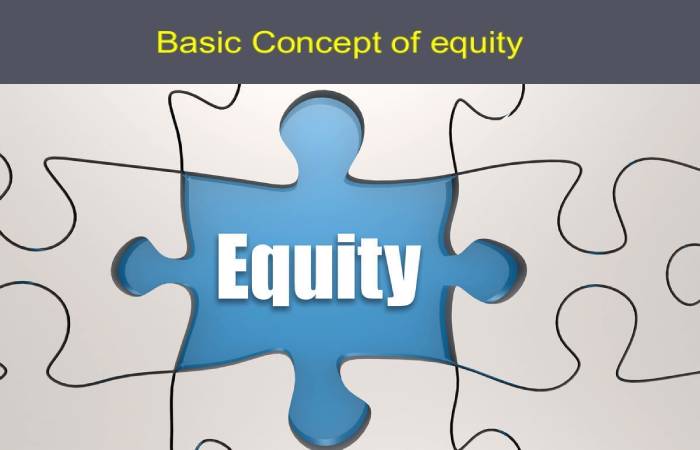Table of Contents
What is Equity?
Equity comes from Latin. This term is associated with the standards of equality and justice.
More Content by Concept of Equity

- It tries to promote equality, beyond differences in sex, culture, economic sectors to which one belongs, etc.
- That is why it is usually connected to social justice, since it protects the same conditions and opportunities for all persons, without distinction, only adapting in particular cases.
- In other words, for equity to be real, the rule, in general, cannot be applied to all individuals, but certain exceptions must observe for each particular case. Also, each person must be able to assert their rights, no matter where they come.
- It fights counter to poverty, discrimination, racism, xenophobia, homophobia, among other issues that promote distance and differences between individuals.
What are the Types of Equity?

1. Gender equity
- When it comes to gender equality, it refers to equality and justice, in which people, irrespective of their sex, can declare their rights and have the same opportunities and responsibilities.
- Some cases where gender equity is evident are discrimination when looking for a job or violence against women.
- Although it recognizes differences between women and men, it does not mean that one of the sexes is inferior or more extensive to the other.
- They must possess the same means and capacities for working in work, family life, political and social.
2. Social Equity
- When talking about social equity policies, the reference makes to health issues, that is to say, it is affordable for all the state’s inhabitants.
- The same in the field of education, anyone who wishes can access the three levels of education.
- Likewise, these policies should add equal employment opportunities, which are also worthy positions.
- Living conditions are also elementary and refer to the right home and access to drinking water, electricity, sewage networks, etc.
- Many other policies aimed at social it can mention. One of its chief objects is to attain greater inclusion of all people in a specific state and raise their living standard until they reach real social well-being.
3. Private Equity
- When an investment publicly traded, the market value of equity is readily available by looking at its sare price.
- The market mechanism does not exist for private enables, so other forms of estimate must estimate value.
- Private generally mentions such an evaluation of companies that not publicly traded.
- The accounting equation still applies where specified equity on the balance sheet is left over when subtracting liabilities from equity, inward at an estimate of book value.
- Privately detained companies can then seek investors by selling off shares directly in private placements.
- These private equity investors can include pension funds, university endowments, insurance companies, or accredited individuals.
- Private equity often sells to funds and investors that specialize in indirect investments in private companies or engage in leveraged buyouts (LBOs) of public companies.
- In an LBO transaction, a company accepts a loan from a private equity firm to fund the acquisition of another company’s division. Cash flows or the possessions of the company usually acquire safe the loan.
- Mezzanine debt is a private loan, usually if a commercial bank or a mezzanine venture capital is secure. Mezzanine transactions often involve a mix of duty and equity in a subordinated loan or warrants, common stock, or favourite stock.
- Private it comes into play at different opinions along a company’s life cycle. Typically, a young business with no revenue or earnings can’t afford to copy, so it must get capital from friends and family or separate “angel investors.
Equity in Law and Economics
- It is one of the essential values of Law.
- Within the Science of Law, the equity value acquires great importance. Although it does not respond to one of the law sources, it usually uses it to correct the law.
- This tool allows adapting the standard to the particular needs of each case. In other words, the law applies according to specific circumstances.
- That is why it is considered one of Law’s essential values since it has a more humane position if you want it since specific considerations believe.
- It should clarify that this a highly dispute position since the time of Aristotle.
- From Economic Sciences, we are talking about it and justice to apply to tax people’s treatment. It means that the tax burdens must vary according to each particular case to achieve equity truly.
Other Forms of Equity
The notion of equity has applications beyond just evaluating companies. We can see more general reason for it as a degree of ownership in any asset after subtracting all debts associated with that asset.
Below are several common variations on equity:
- A stock or any other security on behalf of an ownership interest in a business.
- On a company’s balance sheet, the amount of the funds contributed by the owners or shareholders plus the retained earnings (or losses). One may also call this stockholders’ equity or shareholders’ equity.
- In margin trading, the worth of securities in a margin account minus the explanation holder borrowed from the brokerage.
- In real estate, the change between the property’s current fair market value and the amount the owner still owes on the mortgage. It is the quantity that the owner would obtain after selling a property and paying any liens. Also mentioned as “real property value.”
- When a business goes broke and has to liquidate, it is outstanding after its creditors are repaid. It most often calls “ownership equity,” also known as risk capital or “liable capital.”
Also Read: Soft Technology – Definition, Concepts, Objectives, and More
- KNOW MORE:- theehealthcar

